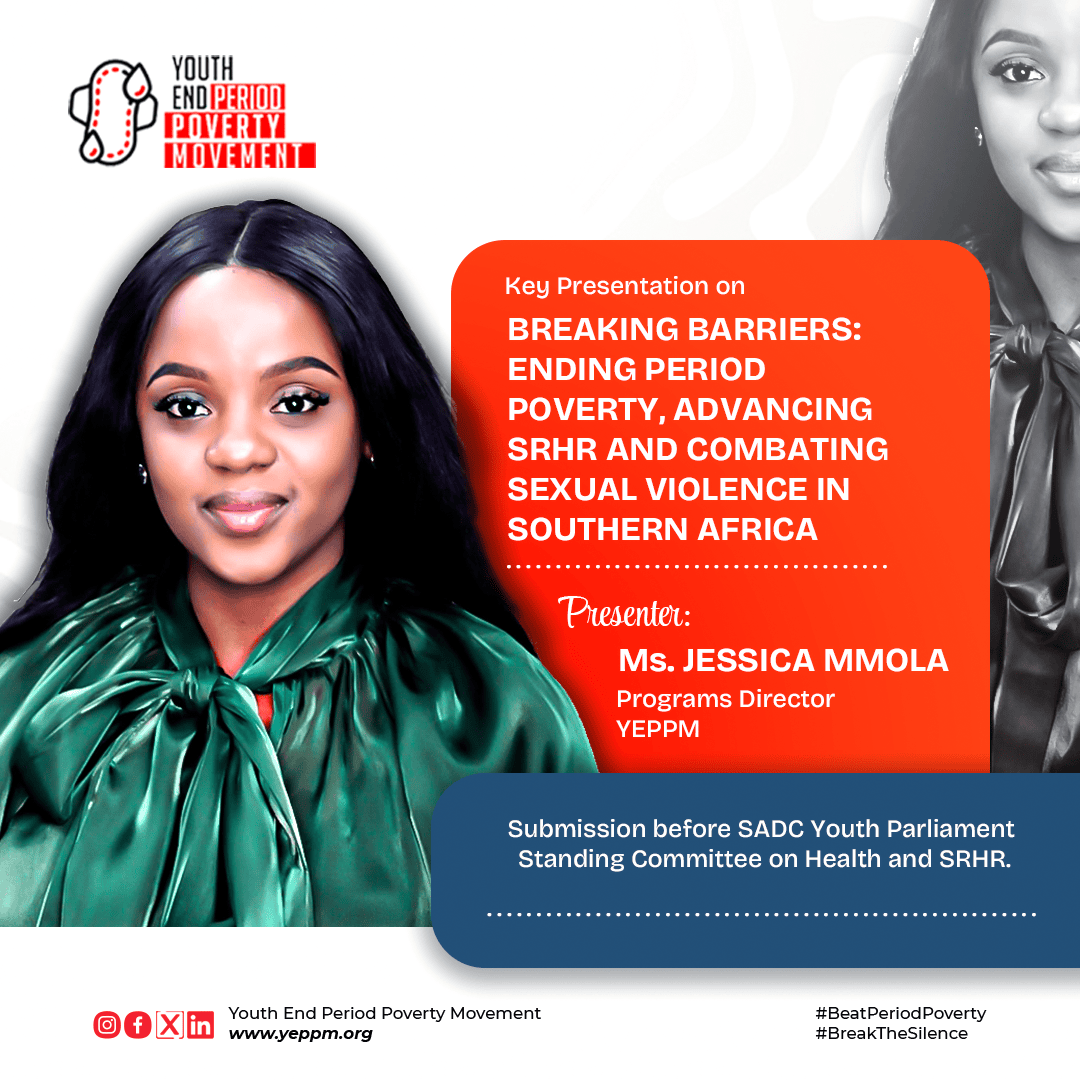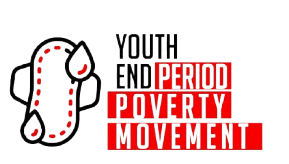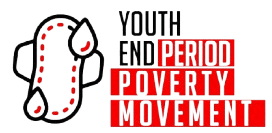
The Youth End Period Poverty Movement delivered a submission to the SADC Youth Parliament Standing Committee on Health and Sexual and Reproductive Health and Rights (SRHR) on 11 March 2025, calling for urgent action to address the intersecting challenges of period poverty, lack of access to SRHR services, and sexual violence across Southern Africa. Speaking on behalf of countless young girls and women in the SADC region, the Movement highlighted the devastating impact of these issues on education, health, dignity, and economic empowerment. From the girl in Shangombo, Zambia, who misses school because she cannot afford sanitary pads, to the young woman in Dande, Zimbabwe, who lacks access to SRHR services and faces the risk of unintended pregnancies and sexually transmitted infections, the stories of struggle are both heartbreaking and urgent.
Botswana’s Progressive Step: A Model for the Region
The Movement applauded the Government of Botswana for its groundbreaking proposal in the 2025 National Budget to provide free sanitary pads to female students. This bold policy is a lifeline for young women, ensuring their health, dignity, and education are prioritized. Botswana’s leadership sets a powerful example for the region, demonstrating that access to menstrual products is not a luxury but a fundamental human right.
However, while celebrating this milestone, the Movement emphasized that period poverty remains a pervasive issue across Southern Africa. Millions of girls and women are forced to use unsafe materials during menstruation, leading to infections, school absenteeism, and a loss of self-esteem. Period poverty is not just a health issue—it is a violation of human rights and a barrier to gender equality and economic empowerment.
The Stigma and Shame Around Menstruation
The submission also addressed the deep-rooted stigma surrounding menstruation, which perpetuates exclusion and inequality. “Why does society stigmatize something so natural and vital, while violence and harm receive a far different emotional response?” This stigma, coupled with the economic barriers to accessing menstrual products, forces many girls and women to choose between buying food or sanitary products—a choice no one should have to make.
The Scourge of Sexual Violence
Beyond menstrual health, the Movement highlighted the devastating prevalence of sexual violence in Southern Africa. Sexual violence is not just a matter of physical harm—it is an attack on a woman’s dignity, humanity, and future. From workplace harassment to abuse by family members or trusted figures, the trauma of sexual violence leaves deep, lasting scars.
The statistics are heartbreaking: 1 in 3 women in sub-Saharan Africa have experienced physical or sexual violence, and in South Africa alone, over 40,000 rapes are reported annually—with many more cases going unreported due to fear, shame, and lack of support services. Survivors need more than legal justice; they need mental and emotional recovery, safe spaces, and support systems to heal.
A Call to Action for SADC Governments and the SADC Youth Parliament
The Youth End Period Poverty Movement called on SADC governments and the Youth Parliament to take urgent action to:
Eliminate Period Poverty: Provide free or subsidized menstrual products, remove taxes on these items, integrate menstrual health into national health programs, and invest in education to reduce stigma.
Ensure Universal Access to SRHR Services: Strengthen healthcare infrastructure, integrate SRHR into primary healthcare, and involve youth in policy-making to ensure accessible, non-discriminatory services.
Combat Sexual Violence: Enforce laws like the SADC Model Law on Child Marriage, improve support for survivors, and launch campaigns to change harmful social norms. Ensure legal accountability and provide economic and social support for survivors.
Implement and Monitor Regional Frameworks: Fully adopt and monitor the SADC Protocol on Gender and Development and the SADC Regional Strategy for SRHR 2019–2030, with transparent reporting and accountability mechanisms.
Support Grassroots Initiatives: Fund and partner with local organizations to address period poverty and gender-based violence through culturally relevant, community-based interventions.
Improve Data Collection: Collect reliable, disaggregated data on gender-based violence, period poverty, and SRHR to inform evidence-based policies and advocate for resource allocation.
Engage Private Sector and International Partners: Encourage private sector involvement in menstrual health initiatives and strengthen international cooperation for technical and financial support.
Invest in Youth-Friendly Healthcare: Expand access to confidential, inclusive, and respectful healthcare services, including SRHR, mental health, and protection from sexual violence.
The Youth End Period Poverty Movement stands ready to work with the SADC Youth Parliament, governments, civil society, and international partners to achieve these goals. Together, we can build a Southern Africa where every young person can live with dignity, free from violence, and with access to the health services they need to thrive.

